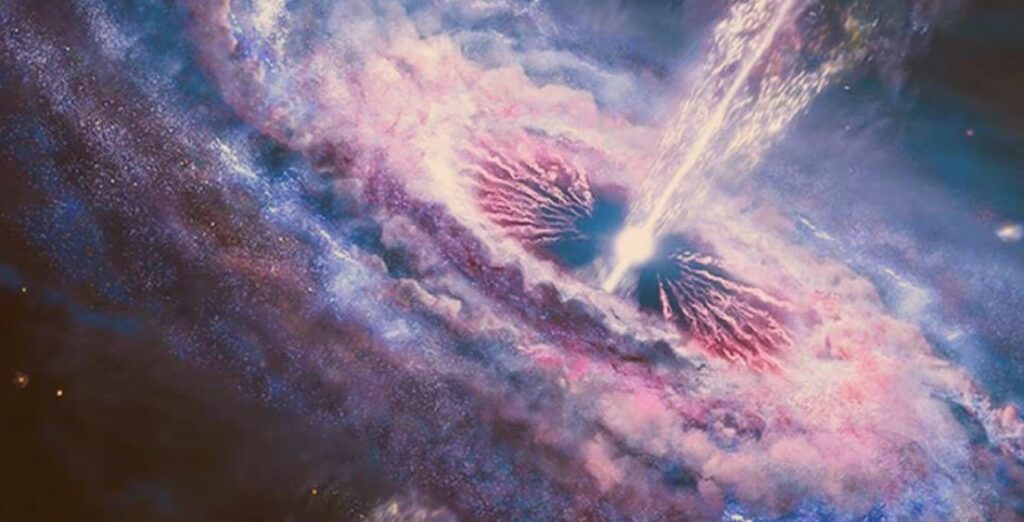
After its “birth” in the Big Bang, the universe consisted mainly of hydrogen and a few helium atoms. These are the lightest elements in the periodic table. More-or-less all elements heavier than helium were produced in the 13.8 billion years between the Big Bang and the present day.
Stars have produced many of these heavier elements through the process of nuclear fusion. However, this only makes elements as heavy as iron. The creation of any heavier elements would consume energy instead of releasing it.
In order to explain the presence of these heavier elements today, it’s necessary to find phenomena that can produce them. One type of event that fits the bill is a gamma-ray burst (GRB)—the most powerful class of explosion in the universe...
Read More









Recent Comments